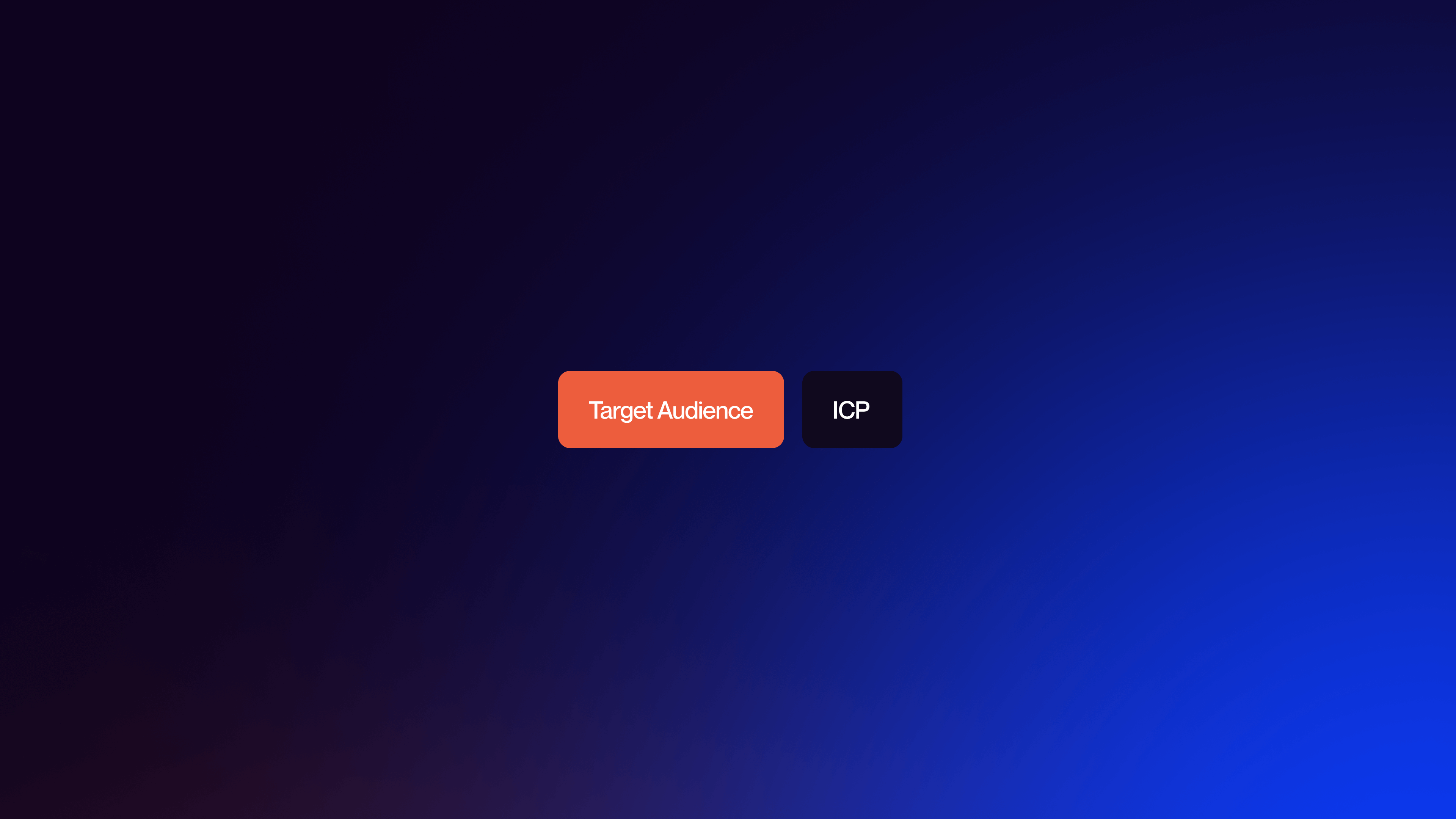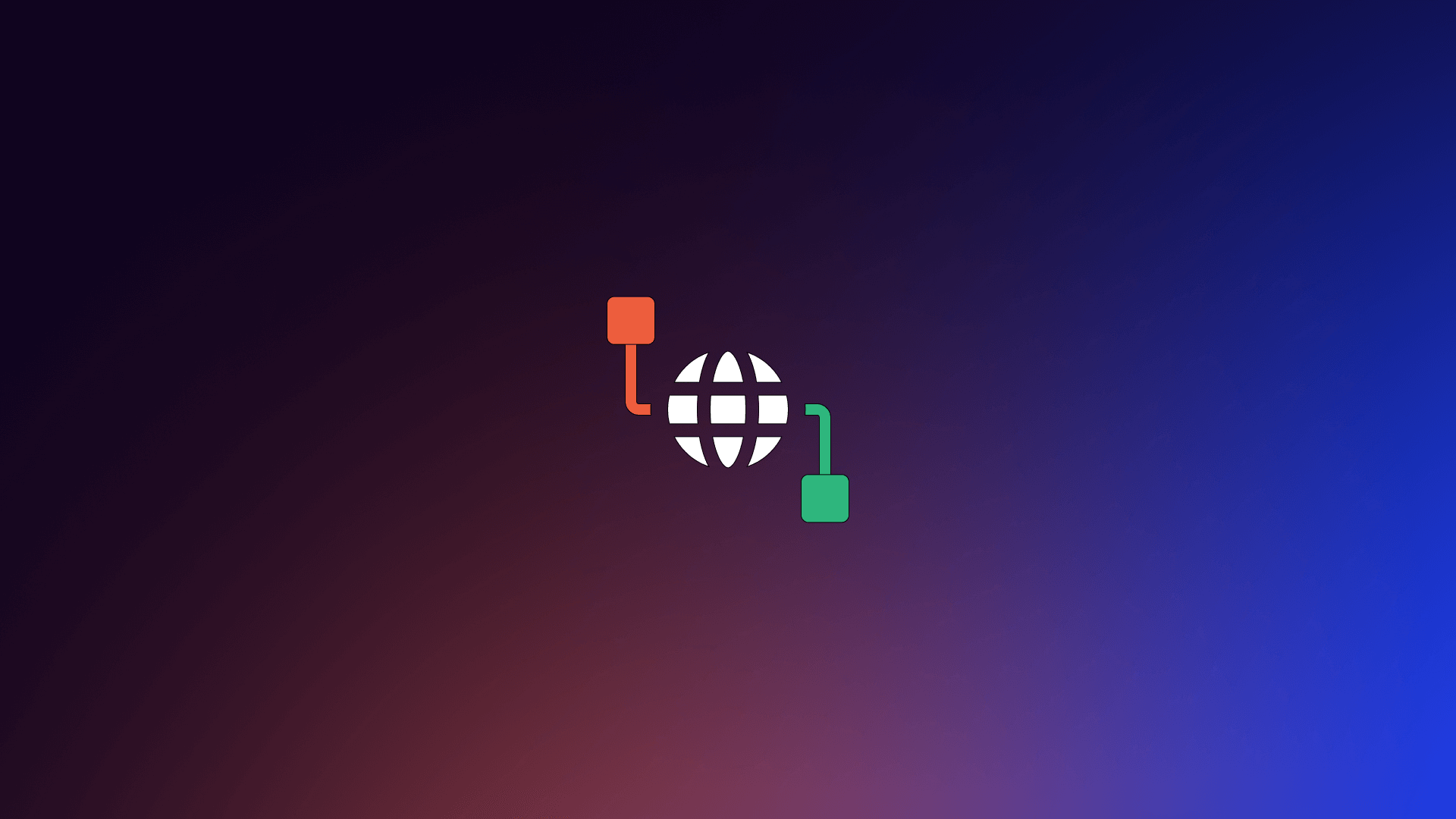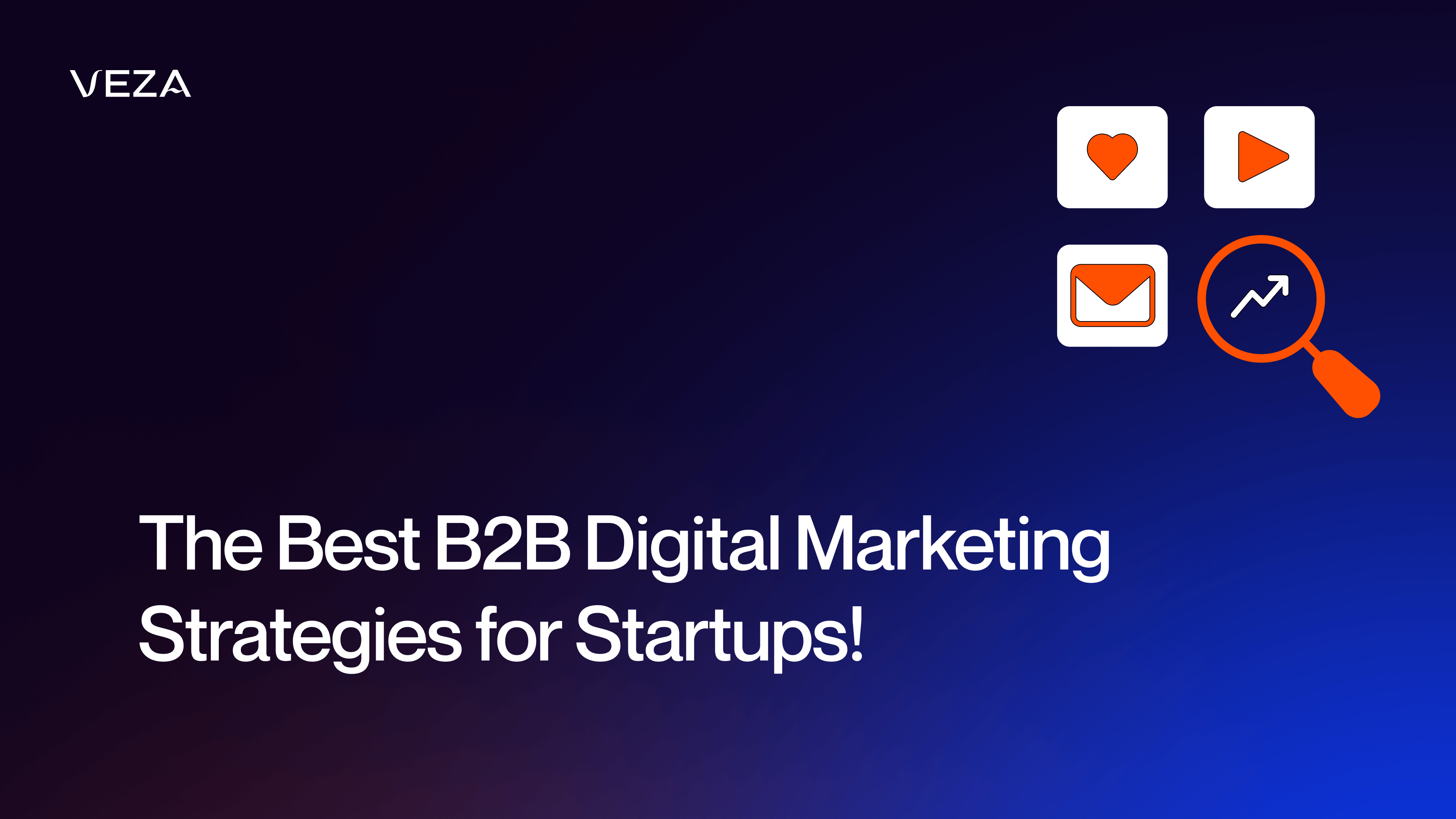B2B startups face unique but often common challenges. These marketers usually have limited budgets, must reach a niche audience, and must show the potential of ROI to secure investor funding.
Not having a solid marketing strategy won't cut it in this industry. So, we have compiled this guide so that marketers can learn about the best digital marketing strategies for B2B startups.
Let’s jump into it!
Marketers Need To Define The Target Audience & Ideal Customer Profile (ICP)

Before we get into any digital marketing tactics, marketers need to have a solid understanding of their target audience. This goes far beyond simply identifying job titles and positions to target. Marketers need to research into the core of their ideal ICP(s), learning about their pain points, the specific industry challenges they face, their online behavior, and even their professional goals. This involves understanding their motivations, frustrations, and the information they seek.
A key part of this understanding is determining where these potential customers spend their time online. Which platforms do they use for research? Where do they network professionally?
What kind of content do they consume, and on which channels? Knowing this allows marketers to concentrate their efforts on the most effective platforms and tailor their content accordingly. Are they active on LinkedIn and seeking industry insights? Do they rely on specific online publications for information? Understanding their online habits is key to reaching them effectively.
This involves identifying the specific factors that influence purchasing decisions. What are the key drivers behind their choices? Are they primarily concerned with price or the most cost-effective solution? Or is functionality the top priority, demanding a product or service that meets their specific needs?
Marketers can use various tools, including AI-powered solutions, to analyze market trends, customer feedback, and competitor strategies, gaining valuable insight. Having this information will help marketers create messaging that speaks to potential customers and this includes marketing materials, website content, and sales pitches that should talk directly to the target audience's needs through data-driven decisions.
Building a Strong Foundation - Website & Content Strategy
A website is the central hub of an online presence and needs to be designed with user experience in mind. Marketers need straightforward and intuitive navigation so visitors can easily find what they're looking for.
Mobile responsiveness on any device and fast loading speeds keep visitors engaged because no one wants to wait for a slow website. A professional and modern design boosts credibility and creates a positive first impression.
At the heart of any successful B2B digital marketing strategy lies content marketing. Content is king, and creating valuable, informative content is what organically brings people to a site.
Marketers need to focus on addressing the specific pain points of your target audience and position your startup as a thought leader in your industry. This can be achieved through various content formats, each serving a different purpose.
Blog posts are fantastic for sharing your expertise, discussing what's happening in your industry, and giving practical tips. White papers and eBooks go into specific topics and offer solutions to the problems that a target audience faces.
Case studies are like real-life examples, showing how your product or service has helped others and proving its value. Webinars and online events are a great way to interact directly with your audience, building relationships and making connections in real time.
Another great way to attract and engage people is by utilising infographics and visual data like charts that help make complex information easier to understand, helping potential customers quickly grasp what you offer.
To make the most of your content, it's a good idea for marketers to create a content calendar. This helps you plan what you'll create and when, keeping your content aligned with what your audience needs at each stage of their buying journey.
Marketers need to optimize everything for search engines by using relevant keywords, so people can easily find the content online. Finally, keep an eye on how the content is performing. Track the results and use the data to improve the content strategy over time.
The Marketers Best Friend - SEO & Paid Advertising

Search Engine Optimization (SEO) is a powerful driver of organic traffic to your website. A well-executed SEO strategy focuses on several key elements. Keyword research is the foundation, identifying the specific terms your target audience uses when searching for solutions like yours. This knowledge informs your content strategy and ensures your website appears in relevant search results.
On-page optimization involves refining your website content, meta descriptions, and title tags to align with these target keywords, making it easier for search engines to understand the context of your pages. Off-page optimization focuses on building high-quality backlinks from reputable websites, signaling to search engines that your site is a trusted source of information.
Finally, technical SEO ensures your website is easily crawlable and indexable by search engines, addressing any technical barriers preventing them from properly accessing and understanding your content. While organic reach through SEO is crucial, paid advertising can significantly accelerate growth, particularly in the early stages of a B2B startup.
Paid advertising allows you to target specific audience segments and drive immediate traffic to your website. LinkedIn Ads are highly effective for reaching particular job titles and industries, leveraging the platform's professional focus. Google Ads enable you to target users actively searching for solutions related to your offering, capturing their intent when they are most likely to convert.
Retargeting campaigns re-engage website visitors who have already shown interest in your product or service, reminding them of your value and encouraging them to take the next step.
Social Media Marketing Tactics for B2B
Social media is not solely the domain of business-to-consumer (B2C) marketing. For B2B companies, social media serves a different but equally important purpose: building relationships and establishing credibility within the industry.
It's less about viral trends and more about fostering meaningful connections with potential clients, partners, and influencers. The focus shifts from mass appeal to targeted engagement with key decision-makers and industry thought leaders.
LinkedIn stands out as the primary platform for B2B networking and lead generation. It's the place where professionals connect, share insights, and engage in industry discussions. For B2B startups, LinkedIn provides an invaluable opportunity to share valuable content, participate in relevant conversations, and directly connect with potential customers.
Twitter, while different in its format, can also play a role in B2B marketing. It's a useful platform for sharing industry news, engaging with influencers, and participating in real-time conversations about relevant topics.
Beyond these two mainstays, other platforms may also be relevant depending on the specific industry and target audience. YouTube can be a powerful tool for showcasing video content, such as product demos, explainer videos, or thought leadership interviews. Industry-specific forums and online communities provide niche spaces for connecting with potential customers and establishing expertise within a particular field.
Developing a comprehensive social media strategy focused on providing value and building genuine relationships is crucial. This involves sharing insightful content, actively engaging with followers, and participating in relevant industry groups.
Marketers can develop a social media strategy focused on providing value and building relationships. Share insightful content, engage with followers, and participate in relevant industry groups.
Build and Nurture Lead - Email Marketing & Marketing Automation

Email marketing remains a cornerstone of B2B digital marketing, providing a direct channel for nurturing leads and building relationships. Targeted email campaigns, segmented by audience and personalized in messaging, can be highly effective in moving potential customers through the sales funnel.
Marketing automation takes this a step further, automating repetitive tasks like email sequences, lead scoring, and even social media posting. This automation frees up marketers to focus on more strategic activities, such as developing content, analyzing data, and refining their overall marketing strategy.
Marketers Need to Make Sense of The Metrics
Data is absolutely essential for making informed decisions in B2B marketing. Without a clear understanding of your performance, a marketer is essentially navigating in the dark. Tracking key metrics provides the insights you need to optimize your strategies and maximize your return on investment. These metrics can include website traffic, giving you a sense of how many people are visiting your digital storefront. Lead generation metrics show how effectively your marketing efforts are attracting potential customers. Conversion rates reveal how well you're turning those leads into actual paying customers.
Customer acquisition cost (CAC) is a crucial metric for understanding the cost-effectiveness of your marketing campaigns. It tells you how much you're spending to acquire each new customer. Finally, return on investment (ROI) measures the overall profitability of your marketing efforts, demonstrating the impact of your investments.
Leveraging the right analytics tools is essential for effectively tracking and analyzing your data. Platforms like Google Analytics provide in-depth insights into website traffic, user behavior, and conversion patterns.
HubSpot and other marketing automation platforms offer comprehensive analytics dashboards that track various marketing activities, from email campaigns to social media engagement. Exploring and utilizing the features of these marketing analytics platforms is key to gaining a deep understanding of your marketing performance.
Regularly monitor and analyze your marketing performance. Identify what's working and what's not, and make data-driven adjustments to your strategies.
Building Relationships & Networking

Building strong relationships and expanding your network are key for B2B success, and industry events and conferences offer valuable opportunities to do just that. These gatherings bring together potential customers, partners, and industry influencers, providing a concentrated environment for networking and making connections.
Attending industry events allows you to engage in face-to-face conversations, learn about the latest trends, and position your startup within the broader industry landscape. These events can be a powerful catalyst for generating leads, establishing partnerships, and building brand awareness.
Beyond physical events, online communities and forums provide a digital space for building relationships and establishing your expertise. Participating in relevant online communities allows you to connect with potential customers and partners who share similar interests and challenges.
Actively participating in both industry events and online communities is essential for B2B startups looking to expand their reach and build a strong network. These activities provide opportunities to connect with key stakeholders, learn from industry leaders, and establish your startup as a valuable player in the market
How Veza Digital Can Help Your B2B Startup
Veza Digital is your trusted partner! Our team of experienced experts specialize in developing and executing comprehensive strategies tailored to the unique needs of B2B startups. Let’s define your goals and find a customized strategy that drives results. Contact Veza Today!
.jpeg)

